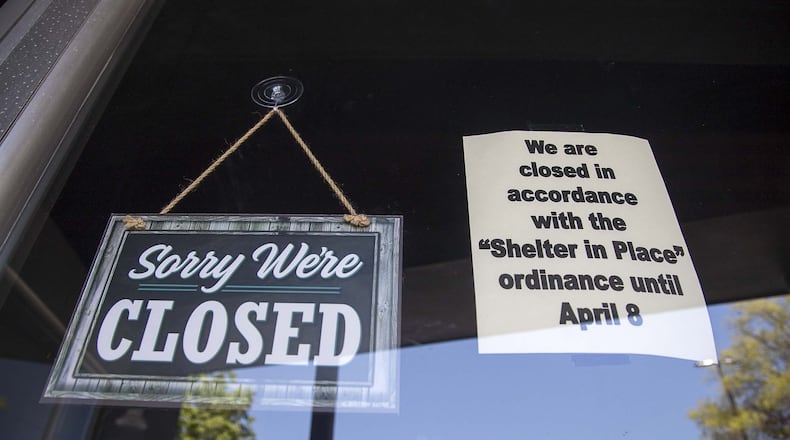When the coronavirus hit this spring, Windy Hill Dentistry in Smyrna was forced to close for everything but emergency services.
The company filed an insurance claim to cover its losses, but The Hartford insurance company denied its request. Now Windy Hill is taking Hartford to court.
From dentists to fitness clubs to hairdressers, hundreds of businesses nationwide are suing insurance companies for failing to cover pandemic-related losses. The businesses claim the forced closures ought to be covered under property damage claims. The virus didn’t cause physical damage, they argue, but its impact is identical to a hurricane blowing off a roof or rioters smashing windows — their offices have been rendered dangerous and unusable.
The insurance industry contends the coronavirus is not covered, and most judges have agreed.
The companies hope a ruling by a federal judge in Missouri this month will change that. In that case, the insurance company filed a motion to dismiss the suit, claiming COVID-19 is not a covered event. But U.S. District Court Judge Stephen Bough ruled that the policy’s requirement of “physical loss or damage” for a claim has two separate definitions. The company may not have suffered damage, but they may have suffered a loss, and that’s a legal question that merits consideration.
Credit: Curtis Compton
Credit: Curtis Compton
Legal experts said the weight of court decisions have fallen against companies making the claims, but the ruling and a successful suit could unleash hundreds of billions of dollars for businesses that are already strapped for cash. At the same time, insurance companies say it could bankrupt the industry. Six Georgia businesses, including Windy Hill, aren’t waiting on the outcome of the Missouri case and have filed similar lawsuits.
Windy Hill Dentistry and its attorney, former Gov. Roy Barnes, did not respond to calls and emails seeking comment on their lawsuit.
The money can’t come soon enough for many business owners.
Federal relief loan money disbursed this spring is running out, and Congress and the White House have yet to agree on a new financial stimulus package, though the two sides have recently appeared to make progress.
Companies see insurance as a potential source of desperately needed funds, said Mike Iverson, an insurance agent in Fairburn. All of his clients’ virus-related claims based on property damage have been denied. He advises clients such a claim is a longshot.
If pandemics were deemed to be covered, the industry would likely pay between $50 billion and $150 billion per month in COVID-19 claims, according to the Insurance Information Institute.
Credit: Ben Gray
Credit: Ben Gray
“It would threaten the solvency of the insurance industry,” the group said in a statement.
The Insurance Information Institute’s members include Farmers, Hanover and Hartford, all of which have been sued in Georgia for denying these type of claims for COVID-19 coverage.
Insurance companies argue that the coronavirus is no different from mold or other particulates that can be cleaned.
Most federal judges have so far agreed with the insurance industry’s arguments, with rulings in Michigan, Texas and the District of Columbia.
Case law in Georgia also works against policyholders, said Karen Karabinos, an attorney at Drew Eckl & Farnham who represents insurance companies. State judges have ruled that the building itself must be damaged and not just closed, she said.
“These companies are saying they can’t use their offices, but that wouldn’t work under Georgia law,” she said.
The Georgia companies filing claims so far in federal court to challenge the denial of their claim include Progressive Lighting, a metro Atlanta chain of light-fixture stores; Gilreath Family Dentistry in Marietta; Monroe Family & Cosmetic Dentistry in Walton County; Karmel Davis & Associates, a Douglasville law firm; and Fight for Fitness, an Alpharetta health club.
None of the plaintiffs or their attorneys responded to calls and emails seeking comment.
Significant legal questions remain unanswered said Bill Holley, a commercial litigation attorney at Parker, Hudson, Rainer & Dobbs. But the resolution could have a profound impact on the U.S. economy,
“I don’t know that you could even estimate the size of the impact,” Holley said. “Almost every business has been impacted in some way.”
About the Author
The Latest
Featured





